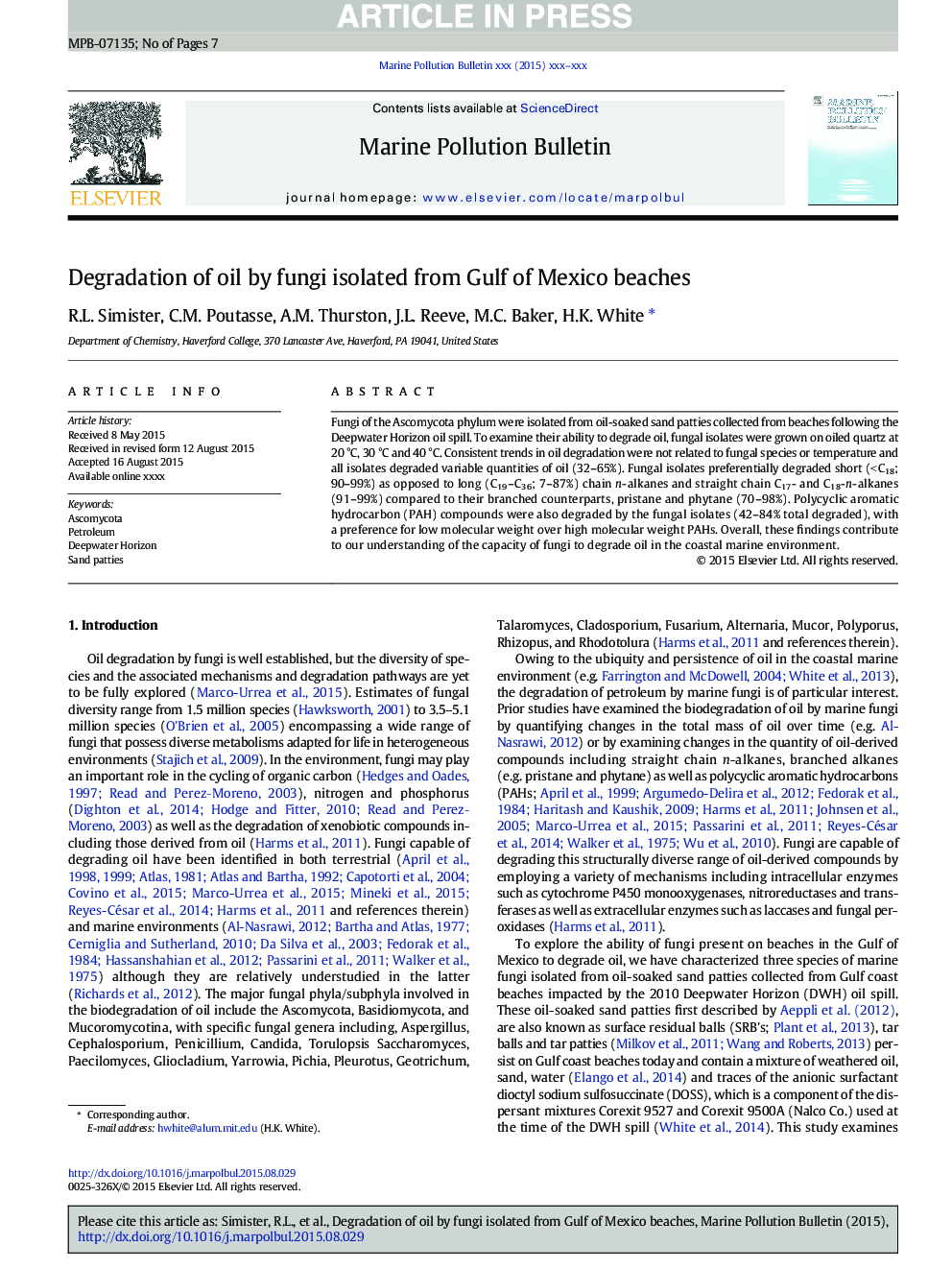| Article ID | Journal | Published Year | Pages | File Type |
|---|---|---|---|---|
| 6356737 | Marine Pollution Bulletin | 2015 | 7 Pages |
Abstract
Fungi of the Ascomycota phylum were isolated from oil-soaked sand patties collected from beaches following the Deepwater Horizon oil spill. To examine their ability to degrade oil, fungal isolates were grown on oiled quartz at 20 °C, 30 °C and 40 °C. Consistent trends in oil degradation were not related to fungal species or temperature and all isolates degraded variable quantities of oil (32-65%). Fungal isolates preferentially degraded short (< C18; 90-99%) as opposed to long (C19-C36; 7-87%) chain n-alkanes and straight chain C17- and C18-n-alkanes (91-99%) compared to their branched counterparts, pristane and phytane (70-98%). Polycyclic aromatic hydrocarbon (PAH) compounds were also degraded by the fungal isolates (42-84% total degraded), with a preference for low molecular weight over high molecular weight PAHs. Overall, these findings contribute to our understanding of the capacity of fungi to degrade oil in the coastal marine environment.
Keywords
Related Topics
Physical Sciences and Engineering
Earth and Planetary Sciences
Oceanography
Authors
R.L. Simister, C.M. Poutasse, A.M. Thurston, J.L. Reeve, M.C. Baker, H.K. White,
